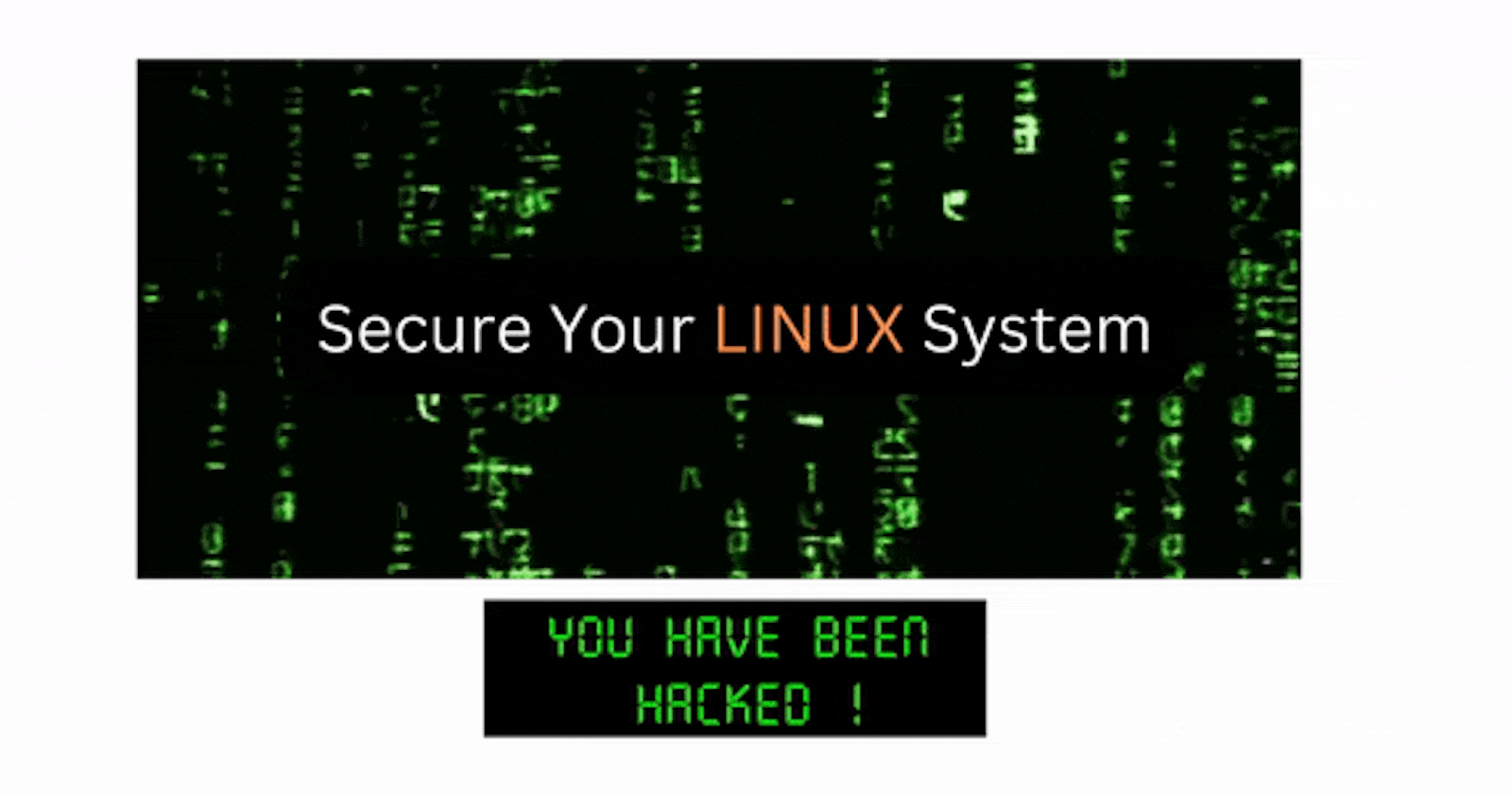Linux security best practices for beginners

Introduction :
As a beginner in Linux, one of the most important aspects to consider is security. Linux is known for being a secure operating system, but it is still important to follow best practices to ensure that your system and data remain safe. In this blog post, I will share some Linux security best practices that every beginner should know.
so without wasting any time,

Keep your system up-to-date
Keeping your Linux system up-to-date is one of the most important security measures you can take. Updates often include security patches that fix vulnerabilities and bugs that can be exploited by hackers. To update your system, open the terminal and run the following command:
sudo apt update
sudo apt upgrade
Use a strong password

Using a strong password is crucial for securing your Linux system. Avoid using common words or phrases, and instead use a combination of uppercase and lowercase letters, numbers, and symbols. Also, avoid reusing passwords for different accounts. To change your password, open the terminal and run the following command:
passwd
Disable unnecessary services
Disabling unnecessary services can help reduce the attack surface of your Linux system. Services that are not needed should be disabled to reduce the chances of them being exploited by attackers. To check the status of services on your system, open the terminal and run the following command:
systemctl list-unit-files --type=service
To disable a service, run the following command:
sudo systemctl disable <service-name>
Replace <service-name> with the name of the service you want to disable.
Install a firewall
A firewall is an essential tool for securing your Linux system. A firewall can block unauthorized access to your system and prevent malicious traffic from entering or leaving your system. To install a firewall, open the terminal and run the following command:
sudo apt install ufw
After installing the firewall, you can enable it using the following command:
sudo ufw enable
Use sudo and avoid using the root account
The root account has complete control over the system, and should only be used for administrative tasks. Using the root account for regular tasks can be dangerous and increases the risk of mistakes being made. Instead, use the sudo command to perform administrative tasks. To use sudo, run the following command:
sudo <command>
Replace <command> with the command you want to run as an administrator.
Encrypt your data
Encrypting your data is an effective way to prevent unauthorized access to your files and folders. Linux supports various encryption methods, such as LUKS and dm-crypt. To encrypt a partition, open the terminal and run the following command:
sudo cryptsetup luksFormat <partition>
Replace <partition> with the name of the partition you want to encrypt.
Conclusion :-
Linux security is an essential aspect of system administration. By following these best practices, you can significantly reduce the risk of your system being compromised by attackers. Remember to keep your system up-to-date, use strong passwords, disable unnecessary services, install a firewall, use sudo, and encrypt your data. So now ,Your data is safe and no hacker can easily hack your system.

Track:- LINUX
 Develop and Solve
Develop and Solve 


